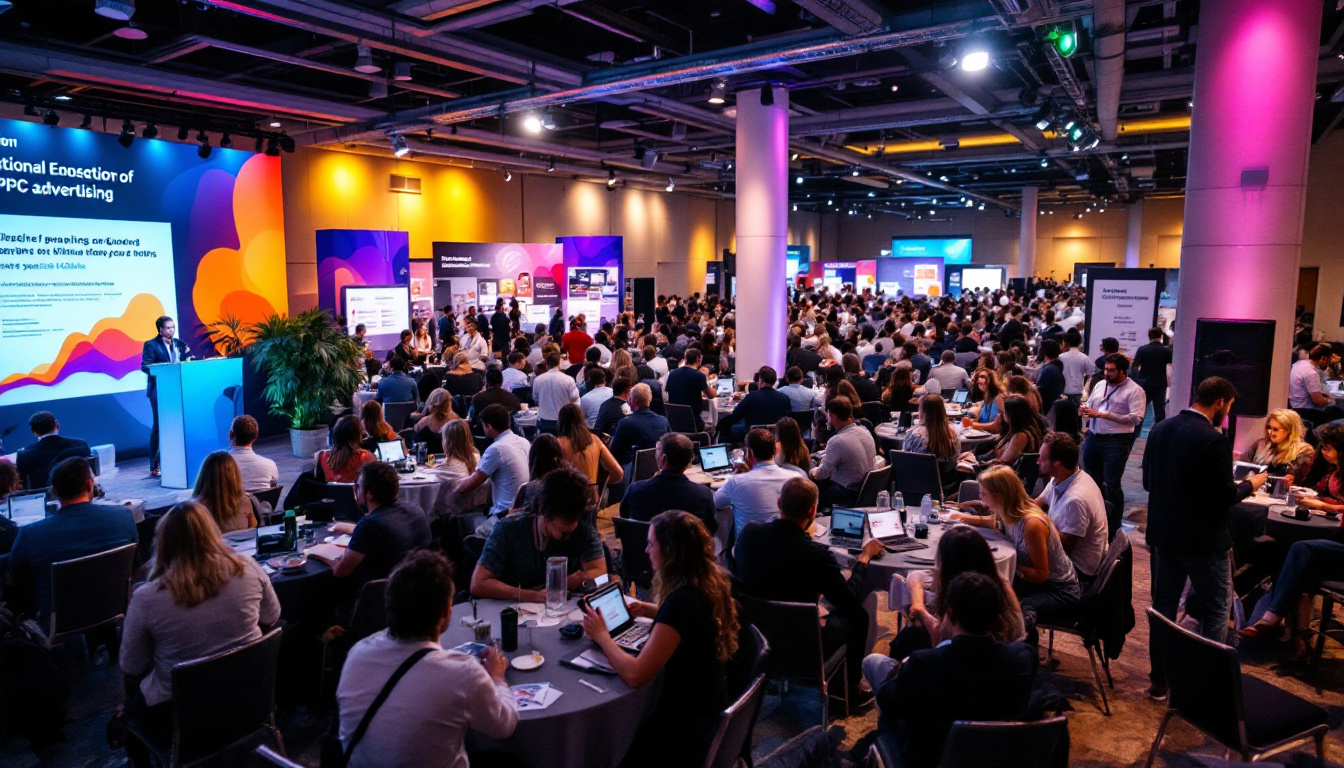The Beginner's Guide to PPC Advertising in Orlando, FL

PPC (Pay-Per-Click) advertising is a powerful tool for businesses looking to reach a targeted audience effectively. In Orlando, where competition is intense and the market is ever-evolving, understanding the ins and outs of PPC can significantly enhance your marketing efforts. This guide aims to provide comprehensive insights into PPC advertising, helping both newcomers and seasoned marketers refine their strategies.
What is PPC and how does it work?
PPC is an online advertising model where advertisers pay a fee each time their ad is clicked. Essentially, it’s a way to buy visits to your site, rather than earning those visits organically. Did you know that one of the most prevalent forms of PPC is through Google Ads? This platform allows businesses to display ads in Google's search results and on their extensive network of partner sites.
The mechanics involve bidding on keywords that potential customers might use when searching for a product or service. When someone searches using these keywords, your ad may appear. Successful campaigns require a strategic approach to keyword selection, ad development, and overall budget management. Additionally, PPC can be incredibly versatile, allowing businesses to target specific demographics, locations, and even times of day, ensuring that the right audience sees their ads at the right moment.
Understanding the PPC Auction
One of the critical aspects of PPC is the auction system. When a user types a query in Google, an auction is triggered, and advertisers can bid on the associated keywords. However, the highest bid doesn’t always win. Google also considers the quality of the ad, a factor known as Quality Score. This includes the relevance of the keywords, the quality of the landing page, and the expected click-through rate.
Ad rank, which determines the position of your ad, is calculated using your bid amount and Quality Score. Therefore, even if you bid less, maintaining a high-quality ad can lead to better placements and lower costs. This means that advertisers must not only focus on their bidding strategies but also on creating compelling ad copy and optimizing their landing pages for user experience. Moreover, continuous monitoring and tweaking of campaigns based on performance metrics can significantly enhance the effectiveness of PPC efforts, making it a dynamic and engaging aspect of digital marketing.
Why PPC is ideal for businesses in Orlando, FL
Orlando is a bustling city, renowned for its theme parks, tourism, and diverse business landscape. PPC offers unique advantages for local businesses looking to stand out in this competitive environment. With its ability to target a specific audience and deliver measurable results, PPC becomes an invaluable resource for growth.

Moreover, Orlando's demographics reveal a diverse population and a continuous influx of tourists. A well-crafted PPC campaign can reach both local consumers and visitors seeking services in real-time, making it crucial for seasonal promotions or time-sensitive offers.
Targeted Advertising
One of the standout features of PPC is its targeting capabilities. Businesses can tailor their advertisements based on geographical location. For local companies in Orlando, this means ads can be directed exclusively to individuals in the area, thereby increasing the likelihood of conversion.
In addition, PPC platforms allow for demographic targeting based on age, gender, and interests, making it easier to reach your ideal customer profile. This effectively enhances conversion rates, as the ads are more aligned with users' preferences.
Furthermore, the ability to utilize keyword targeting in PPC campaigns means that businesses can capture the attention of users actively searching for specific products or services. For instance, a local restaurant can bid on keywords like "best dining in Orlando" or "family-friendly restaurants near me," ensuring that their ads appear at the top of search results when potential customers are looking for dining options. This immediacy not only drives traffic but also fosters a sense of urgency, encouraging users to act quickly.
Additionally, PPC campaigns can be finely tuned over time based on performance metrics. By analyzing click-through rates, conversion rates, and user engagement, businesses can adjust their strategies to optimize their advertising spend. This iterative process allows for continuous improvement and ensures that marketing dollars are being used effectively, maximizing return on investment. In a dynamic market like Orlando, where consumer preferences can shift rapidly, this flexibility is a significant advantage for businesses aiming to stay ahead of the competition.
How to set up a PPC campaign step-by-step
Setting up a PPC campaign may seem overwhelming at first, but breaking it down into manageable steps can simplify the process. Here's how to get started:

- Define Your Goals: Determine what you want to achieve. Is it website traffic, lead generation, or sales? Clear objectives help shape your campaign.
- Research Keywords: Conduct thorough research using tools like Google Keyword Planner. Focus on keywords that are relevant to your business and have a good search volume with manageable competition.
- Create Compelling Ads: Write ad copy that resonates with your target audience. Use strong calls to action, highlight unique selling points, and ensure relevance to the keywords.
- Set Your Budget: Decide how much you're willing to spend daily or monthly. Keep in mind that your budget will influence your ad visibility.
- Launch Your Campaign: After setting everything up, go ahead and launch. Monitor closely in the initial days to make necessary tweaks.
Monitor and Optimize
Once your campaign is live, it’s crucial to continuously monitor its performance. Utilize metrics like click-through rates (CTR), conversion rates, and return on ad spend (ROAS) to gauge effectiveness. Regular adjustments, such as updating keywords or modifying bids, can lead to improved outcomes.
In addition to tracking these metrics, consider implementing A/B testing for your ads. This involves creating multiple versions of your ad copy or visuals to see which performs better. A/B testing can provide valuable insights into your audience's preferences and help refine your messaging for maximum impact. Furthermore, don’t forget to keep an eye on your competitors. Analyzing their PPC strategies can reveal new opportunities or areas where you can differentiate your offerings, ensuring that your campaign remains competitive in the ever-evolving digital landscape.
Another essential aspect of a successful PPC campaign is the landing page experience. Ensure that the landing pages you direct traffic to are optimized for conversions. This includes having a clear layout, compelling content, and a straightforward call to action. A well-designed landing page not only enhances user experience but also improves your Quality Score in platforms like Google Ads, which can lead to lower costs per click and better ad placements. Therefore, investing time in creating a seamless transition from ad to landing page can significantly influence the overall success of your PPC efforts.
Tips for choosing the right PPC keywords
Selecting the right keywords is fundamental to a successful PPC campaign. Here are some essential tips to guide your keyword selection:
- Focus on Long-Tail Keywords: These are longer, more specific phrases that typically have lower competition and higher conversion rates.
- Incorporate Local Keywords: For businesses operating in Orlando, including local terms like “Orlando” or “near me” can attract targeted traffic.
- Use Negative Keywords: These are keywords you want to exclude from triggering your ads. They help reduce irrelevant clicks and save budget.
- Analyze Competitor Keywords: Research what keywords your competitors are bidding on. Tools like SEMrush can provide insights into their strategies.
Test and Refine
Keyword performance can fluctuate, so it’s important to regularly test and replace underperforming keywords. Analyzing keyword data helps you refine your campaign and target a more relevant audience, ultimately leading to better results.
Another effective strategy is to leverage keyword research tools that can provide valuable data on search volume, competition, and trends. Google Keyword Planner, for instance, allows you to explore new keyword ideas and see how a list of keywords might perform. Additionally, consider seasonal trends that might affect keyword performance; for example, a keyword related to holiday shopping may see spikes in search volume during the months leading up to the holidays. By staying attuned to these fluctuations, you can adjust your PPC strategy to maximize visibility and engagement.
Furthermore, don't overlook the importance of user intent behind the keywords. Understanding whether users are searching for information, looking to make a purchase, or seeking a specific service can significantly influence your keyword choices. Tailoring your ad copy and landing pages to align with this intent not only improves click-through rates but also enhances the overall user experience, making it more likely that visitors will convert into customers. This holistic approach to keyword selection ensures that your PPC campaigns are not only effective but also resonate with your target audience.
How to track and measure success in PPC
Tracking and measuring the success of your PPC campaign is crucial for understanding its impact and making informed adjustments. Here are several key performance indicators (KPIs) to monitor:
- Click-Through Rate (CTR): This metric shows the percentage of users who click your ad after seeing it. A high CTR indicates that your ad is effective.
- Cost Per Click (CPC): This tells you how much you are paying for each click on your ad. A lower CPC can mean better optimization.
- Conversion Rate: The percentage of users who complete a desired action (such as making a purchase) after clicking your ad.
- Return on Investment (ROI): Calculating ROI provides insight into the profitability of your campaign. A positive ROI indicates that your ad spend is paying off.
Utilizing Analytics Tools
Employing tools like Google Analytics and Google Ads can provide comprehensive insights into user behavior post-click. By understanding how visitors interact with your site, you can further optimize your landing pages and ad strategies for better performance.
In conclusion, PPC advertising offers immense potential for businesses in Orlando, FL. With the right strategies in place, including targeted keywords and continuous optimization, you can drive significant traffic and achieve measurable success. Whether you’re just starting or looking to refine your approach, this guide provides the foundational understanding needed to navigate the world of PPC effectively.

As a Google Ads expert, I bring proven expertise in optimizing advertising campaigns to maximize ROI.
I specialize in sharing advanced strategies and targeted tips to refine Google Ads campaign management.
Committed to staying ahead of the latest trends and algorithms, I ensure that my clients receive cutting-edge solutions.
My passion for digital marketing and my ability to interpret data for strategic insights enable me to offer high-level consulting that aims to exceed expectations.



















